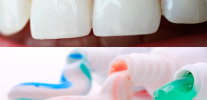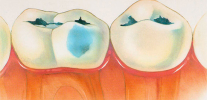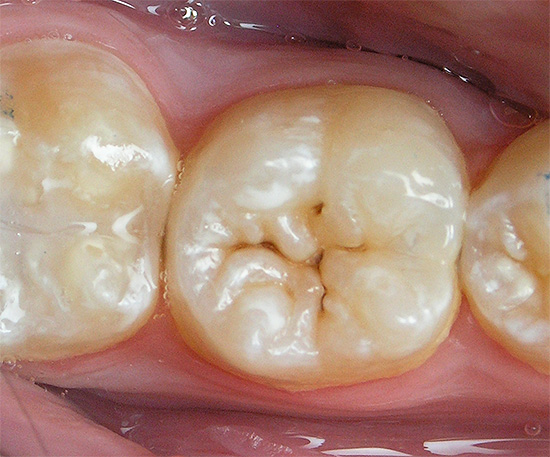
Generally speaking, there are many different measures that hinder the development of caries, but many of these procedures have a small drawback - they require a great desire from a person to protect their teeth and a fair amount of self-discipline. A simple restriction of sweets in the diet, as is customary to talk to children, in this case will be extremely insufficient to ensure the health of the teeth.
Nevertheless, well knowing the factors contributing to the development of pathology, preventive measures can be adapted to your lifestyle and effectively prevent the development of even the initial signs of caries.
Next, we will look in detail at how to protect teeth from caries, even to those people who, it would seem, have always had problems with it since childhood and have already had a whole bunch of fillings in their mouths. Also, the recommendations will be useful to parents of those children whose milk teeth almost “melt” in the mouth from multiple caries.
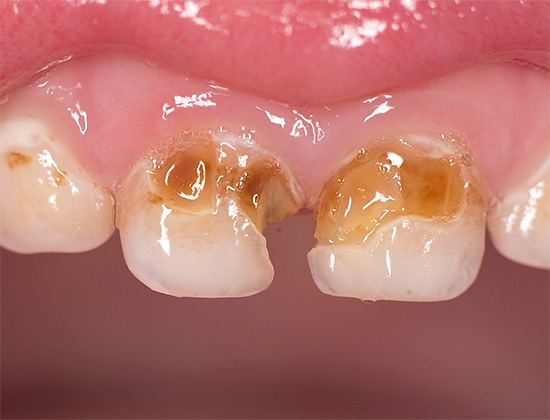
So, protection against caries includes procedures and measures of a different nature, but in general they can be divided into two types:
- strengthening the teeth themselves (increasing their resistance to caries)
- and elimination of cariogenic situation in the oral cavity.
The first group includes the following actions:
- Correction of the diet with an increase in the share of fluoride and calcium-containing products, which, with normal metabolism, allows you to strengthen the tooth enamel.

- Direct treatment of teeth with fluoride and calcium. These drugs include toothpastes, gels, rinses.
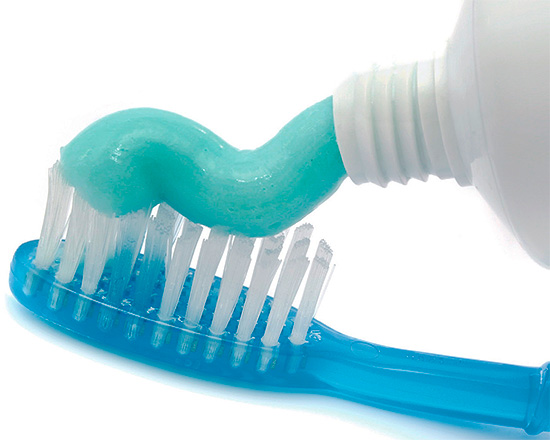
- Overlaying special sealants on the teeth, which prevent the accumulation of cariogenic substances in the fissure area (that is, sealing the natural grooves on the surface of the teeth).
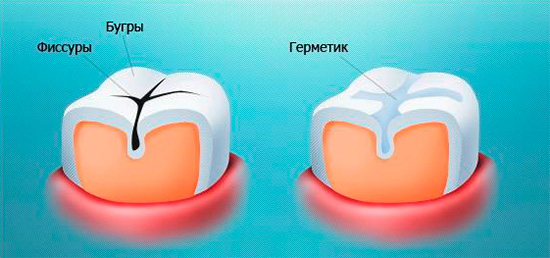
- Acceptance of special drugs that strengthen the enamel of the teeth (for example, fluoride tablets under the supervision of a physician).
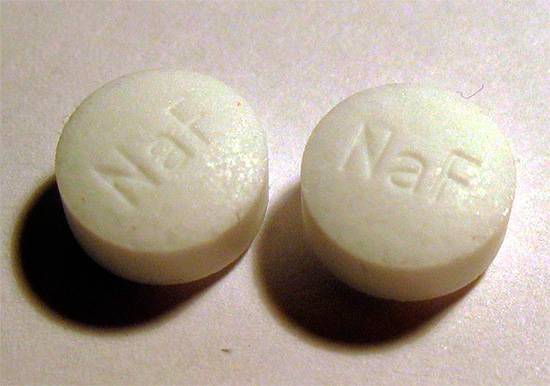
To normalize the situation in the oral cavity and eliminate the causes of caries development, it is necessary to:
- To take care of the purity of the oral cavity - brush your teeth with a brush or floss, rinse your mouth after eating, use chewing gum correctly.
- Adjust the diet and develop a culture of eating - limit the amount of sweet and flour in the diet, not to get involved in snacks.
- Conduct professional oral hygiene 1 time in 6 months at the dentist (remove tartar and plaque).
Both those measures and other measures must be observed in combination, and the majority of these actions must be carried out regularly and under the patient’s own control.
But even before undertaking the implementation of such prophylaxis, you should visit the dentist and consult with him about the set of actions and how prevent caries development in a particular individual case. Depending on the situation in the oral cavity and the susceptibility of the teeth to caries, the set of measures is adjusted and can be either very extensive or quite simple.
Prevention methods at home
Many methods of reliable protection against caries are quite available for self-application in the home. In addition, for the most part they are not complicated and require only regularity and systematic implementation.
Oral hygiene as the main factor in caries prevention
Oral hygiene is aimed at reducing the amount of easily digestible carbohydrates remaining on the surface of the teeth after eating. These carbohydrates are a factor in the formation of organic acids that destroy the mineral structure of enamel.
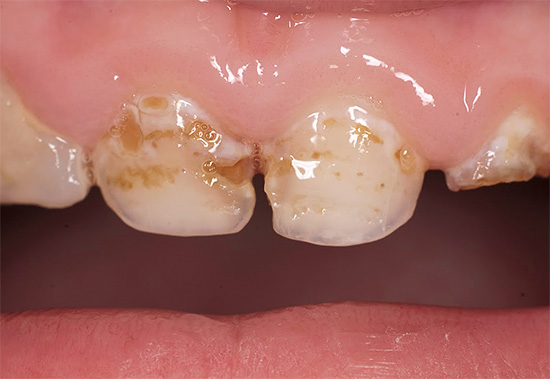
Therefore, to prevent the development of carious processes, it is necessary:
- Brush your teeth at least 2 times a day: always after meals, and it is important to follow the correct technique of cleaning all available surfaces. Hope for the unique cleaning effect of an electric brush is not worth it, as it is not suitable for everyone, not in all clinical cases, and does not negate the possibility of combining with an ordinary toothbrush.
Important!
An electric toothbrush can have an increased abrasive effect (especially on the cervical areas), so using this device with highly abrasive toothpastes (for example, whitening) requires consulting and monitoring hygiene and dental health at the dentist.
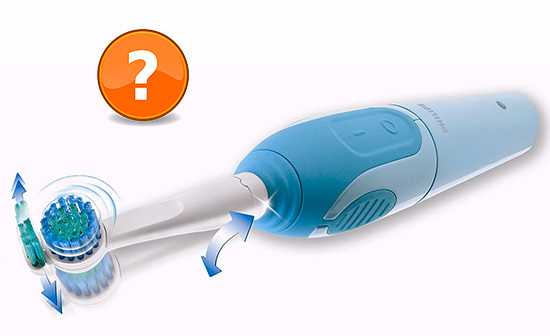
- Additional cleansing of contact surfaces (in the area of dental spaces) using dental floss or floss. Toothpicks are less preferable, as there may be a risk of injury to the gums with a sharp end, and not every tooth between the teeth can penetrate the toothpick.A dental floss, if used correctly, cleans hard-to-reach surfaces better and does not create such prerequisites for inflammation of the gums. By the way, rinsing with special rinsing solutions containing fluoride is preferably carried out after this hygienic procedure - for additional enamel mineralization, including the interdental area that is quite vulnerable to caries.
- For 10-15 minutes after a meal, it is recommended to chew special chewing gum containing xylitol. They not only contribute to the removal of food pieces from the spaces between the teeth, but also reduce the amount of cariogenic microflora on the surface of the teeth.
It is very important that preventive procedures to protect the teeth from caries are quite gentle. When brushing your teeth, you shouldn’t put much pressure on it; you should work carefully and effortlessly with toothpicks and threads, because otherwise it is easy to injure the gum. Chronic injury to the gingival papilla in the interdental area can be dangerous.
Pastes, chewing gums and mouthwash
It is best to choose oral care products as recommended by your doctor.
Of toothpastes, in almost any case, those that contain additional amounts of fluoride and calcium will be good. Today, the most frequently recommended by doctors are pastes of the trademarks Silca, Blend-a-med, Splat, Colgate.
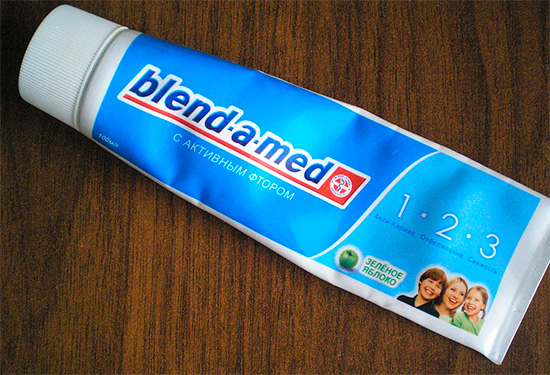
Rinses are divided into 2 groups: to protect against caries and to prevent inflammation of the gums. In our case, since we consider methods of protection against caries, it is important not only to clean the interdental spaces and refresh the breath, but also to supplement the anti-caries effect of toothpastes. Therefore, it is worthwhile to choose rinsing agents containing calcium and fluorine - components that improve the mineralization of tooth enamel, strengthen it and prevent its destruction under the influence of cariogenic factors.
Depending on the concentration of fluoride compounds, the rinse is used at different intervals:
- Every day with a content of 0.05% fluoride in it (the course is determined by a dentist).
- Or once a week at a concentration of more than 0.2% fluoride compounds.
Usually rinsing is carried out a couple of minutes for a successful remineralizing effect in relation to tooth enamel.
From the rinse it is desirable to choose those that do not contain ethanol.Although this substance is an additional antiseptic, it can immediately give a positive result when testing a patient on an breathalyzer.
Rinsers have proven themselves well:
- Listerine
- Colgate
- PresiDENT.
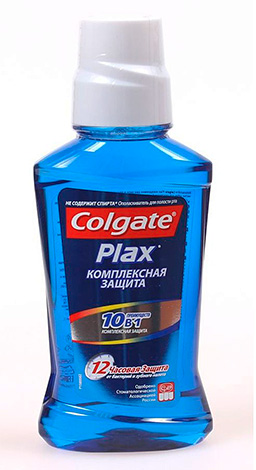
Chewing gum, helping to prevent caries, many well-known today: for example, Orbit and Dirol. By and large, any gum will help remove some of the food debris from the spaces between the teeth and increase salivation.
The main thing is that chewing gum contains, instead of sugar or glucose, substitutes harmless to the teeth, for example, xylitol. Xylitol prevents the growth of cariogenic bacteria, which is a good addition to the main caries prevention.
On a note
The diet correction and its observance, although it is implemented exactly at home and in everyday life, should be made at the initial stages in consultation with the dentist. In addition, this is a typical system method, and we will look at it below.
Experts in the occurrence of caries agree that to prevent the development of enamel demineralization (the initial stage of the caries process), the diet with calcium or even fluorine-containing foods (4 mg daily requirement) is not so important as diet.Constant snacks, including easily digestible carbohydrates (sweets, cakes, cookies) create a favorable environment for the long-term effect of bacteria acids on the subsurface enamel layers.
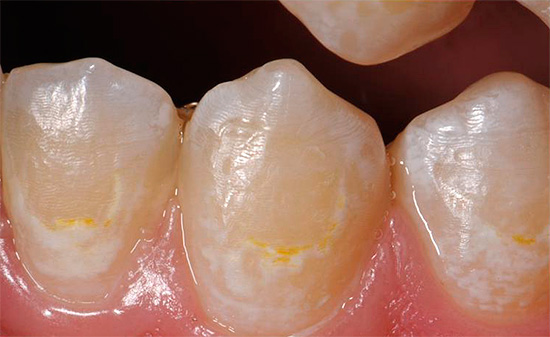
If you think about it, frequent snacks are in any case harmful to the stomach and intestines. But if they happen, from the point of view of protection against caries, the rule should be followed: a snack - carry out a thorough oral hygiene (from using a toothbrush and toothpaste to rinses).
Professional prevention
In the dental office and as prescribed by a doctor, special measures to prevent caries are carried out with the use of special preparations of fluorine and calcium. They process teeth as part of professional hygiene procedures (for example, when removing plaque and tartar, such treatment is one of the important steps) and for the regular prevention of caries in children and adults even before it occurs.
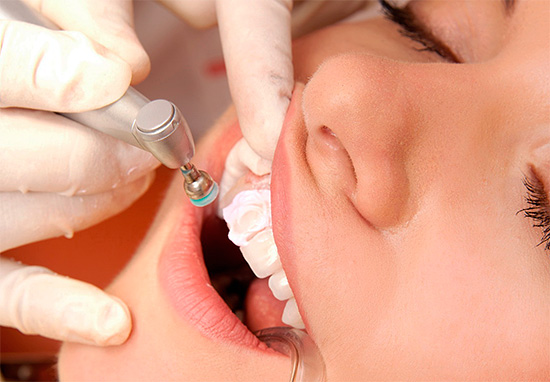
Fluoridation of teeth and the use of special gels and sealants
These procedures are required to strengthen the teeth and increase the resistance of the enamel to the action of organic acids produced by bacteria.In this case, special fluoride or calcium preparations are applied to the teeth (of which the first are more effective).
An example of such a drug is gluftored. This complex is a combination of compounds of fluorine, copper, magnesium and fine calcium hydroxide, when mixed, crystals of calcium fluoride, copper and magnesium are formed on the surface of tooth tissues. Gluftored reliably fills microcracks in the enamel and dentin damage.
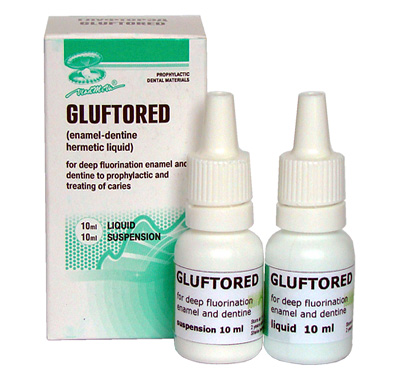
In addition, in dental offices, teeth are sometimes coated with special sealants and varnishes, which reduce the contact of enamel with cariogenic agents (such compositions may also contain fluoride). As instructed by the doctor, at home, the patient applies special gels to the teeth, uses specialized toothpastes and applies dental floss with an additional coating of fluorine-containing compounds to clean the teeth.
Professional teeth cleaning
To protect teeth from caries, regular cleaning of plaque (plaque and tartar) is also required, in which large quantities of cariogenic bacteria are present.Such a procedure should be carried out more often, the faster the plaque and the stone are formed on the teeth. The optimal frequency is 1 time in half a year.
Systemic prevention: protection against caries, anytime, anywhere
Reliable protection against caries is achieved with its systemic prevention, when the metabolism is so adjusted throughout the body that prevention of caries occurs in a completely natural way. Such prevention of the disease is not only very effective, but at the same time it is the most long-term and effective in its implementation over several years.
Proper diet - the guarantee of dental health
Properly formulated diet can not be considered an absolute guarantee of protection against caries. But with an unbalanced diet, even regular dental care does not always protect against caries.
The main requirement for an anticariogenic diet is the maximum restriction of sweets and flour products, especially in the intervals between the main meal. It is on the remnants of such food in the mouth that bacteria are most actively incubated, from the activity of which caries develops later.
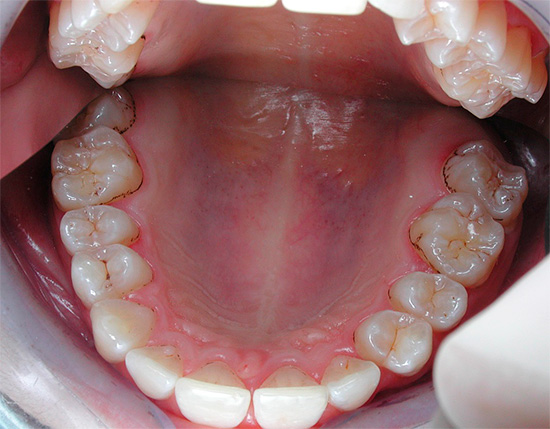
In addition, the predominance of soft foods in the diet contributes to the development of plaque and tartar. Coarse food mechanically erases such deposits. Therefore, in order to protect teeth from caries, it is advisable to include in the diet a large amount of fresh vegetables and fruits, and replace flour products with cereals. In addition, the replacement of carbohydrates in the diet of proteins also have a positive effect on the normalization of the situation in the oral cavity.
In some cases, it is useful to include in the diet salt with a high content of fluorine, fluorinated water. But such decisions should be made only in consultation with the doctor and if there are indications. In some cases, the dentist may even prescribe a regular intake of fluoride tablets or lozenges.
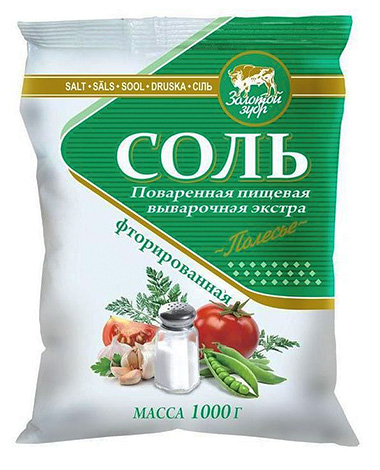
At the reception to the dentist - on schedule, but not for acute pain
To prevent caries, a dentist should be visited regularly according to a schedule previously agreed on an individual basis. It is impossible to rely on the fact that “everything will be okay”: even if caries did not appear, the dentist should clean the plaque, remove tartar and check areas that cannot be viewed in a mirror without a special tool.
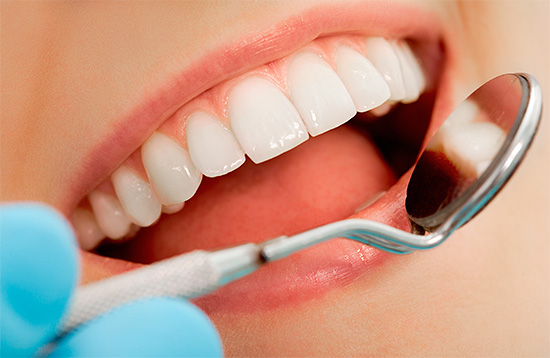
It is important to understand that the complex of preventive measures for each patient is determined individually, depending on the condition of his teeth and the general predisposition to caries. Therefore, it will be enough for one person to come for an inspection once a year, and for another, half a year may be too rare for a survey.
Protection against caries for children
The problem of caries prevention is relevant, first of all, for children, especially for those who have an overbite or are from an early age on artificial feeding. Even despite the generally more intensive salivation in children, rather than in adults, their love of sweets and the frequent neglect of the rules of oral hygiene can lead to multiple caries already in preschool age. Therefore, it is necessary to begin the prevention of caries in children from the moment they have their first baby teeth.
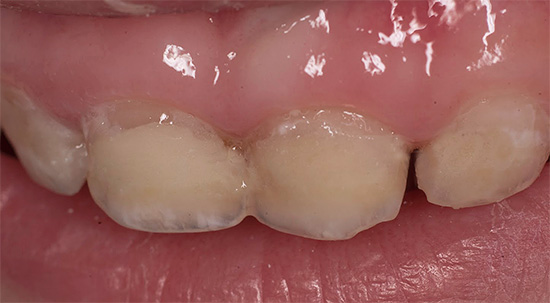
Already after the appearance of the first milk tooth, the baby can be started every day by gently wiping it with gauze dipped in water or special wipes like toothbrushes. This is especially important for children who receive artificial milk formulas or fruit purees before going to bed.The remains of these products on the teeth quickly lead to the reproduction of pathogenic microflora, the formation of plaque and the development of caries.
Children from one and a half years old can already safely be taught to brush their teeth before going to bed. Developed in time, this habit will remain with them for life.
It is impossible to force the child to brush his teeth by force, it is important to use the game form. A mom or dad can defiantly brush his teeth so that the child can see how interesting it is. Depending on the level of mental development of the child, after a year of life, he may try to brush his teeth under the control of his parents with special small toothbrushes with soft tooth bristles.

And, of course, in order to protect a child’s teeth from caries, one should reasonably limit the amount of chocolate, sweets, sweet biscuits, waffles and other sweets in the diet. It is better to replace them with fruits and dried fruits, dairy desserts and vegetables.
Additional systemic measures to prevent caries are strengthening immunity, avoiding bad habits, timely treatment of crowded teeth, improper bite and chipping of enamel. General favorable condition of the body and normal metabolism inin combination with the rules of oral hygiene, they will ensure minimal risks of demineralization on the enamel surface, and the bactericidal properties of saliva will inhibit the growth and development of the microbial factor.
So be healthy! After all, it is an important factor in protecting your teeth from caries.
Useful video: how to keep baby's teeth healthy
What is important to know about caries and how to protect your teeth from destruction

